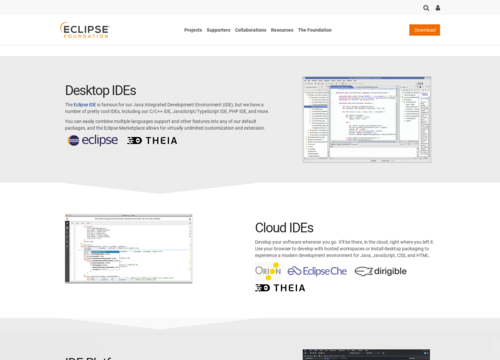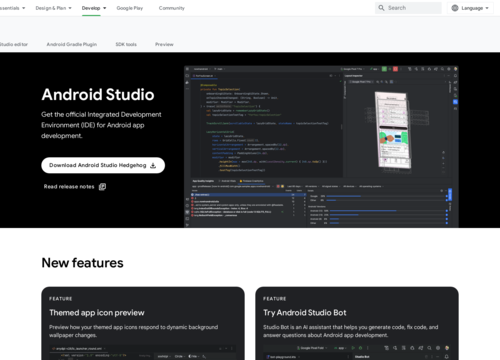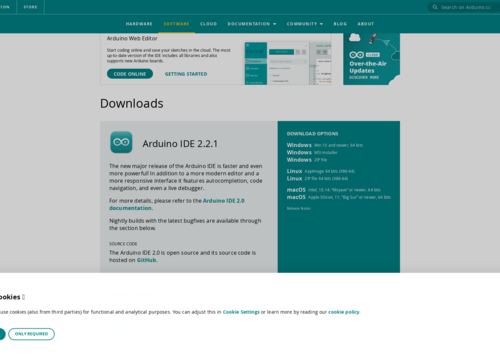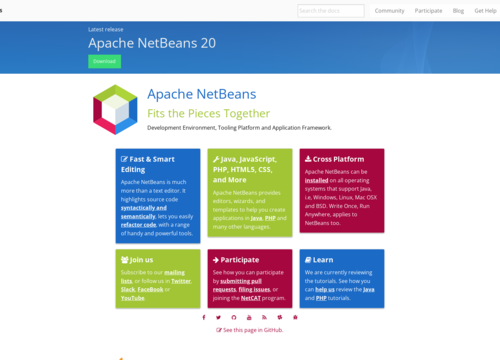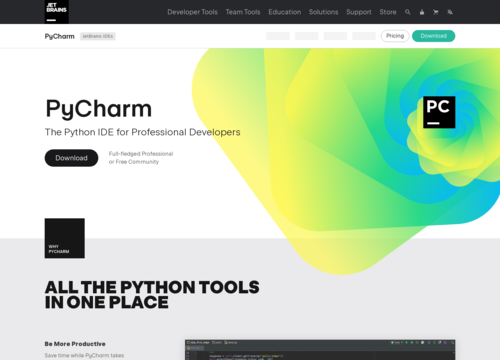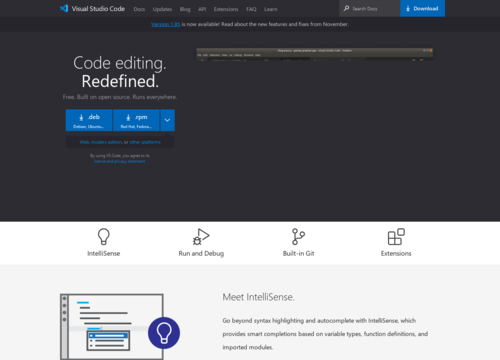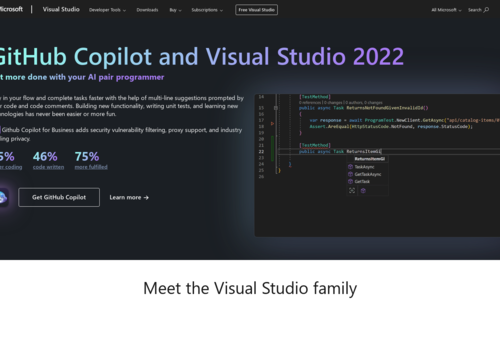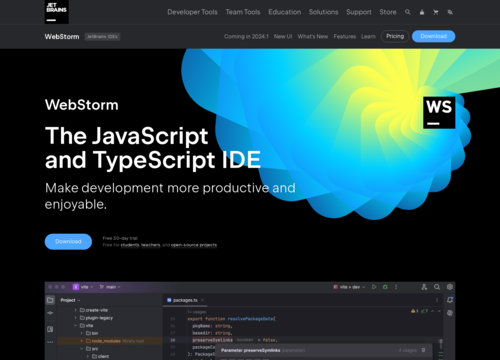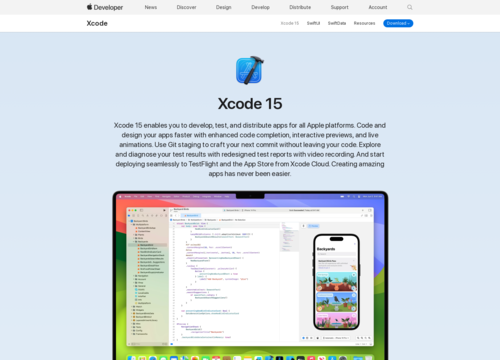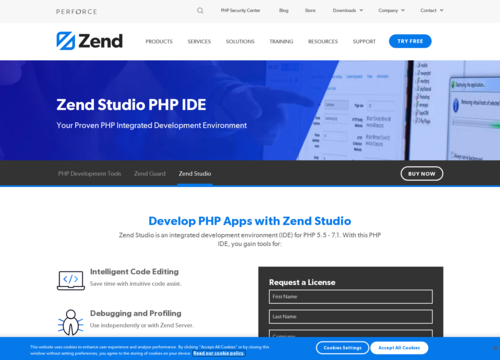Eclipse IDE
https://www.eclipse.org/ide/Eclipse IDE
Eclipse IDE is a widely used Integrated Development Environment (IDE) known for its versatility and robustness. It is primarily used for programming in Java, but owing to its extensible plugin system, it can be adapted to support various other programming languages, such as C, C++, Python, and JavaScript.
At its core, Eclipse offers a feature-rich platform for coding, debugging, and testing software. Its user interface consists of a customizable workspace where you can arrange various windows, known as 'views' and 'editors'. The 'editor' is where you write and edit your code, while 'views' provide different ways to look at your code or the underlying project structure, such as the package explorer, console, or outline view.
One of the strengths of Eclipse is its powerful debugging capabilities. It provides features such as breakpoints, step-through debugging, and a console to monitor runtime operations and diagnose issues in your code.
Eclipse also excels in project management. It allows you to organize your software development projects into modular units, manage dependencies, and integrate version control systems such as Git.
The Eclipse Marketplace is a central hub where a vast array of plugins can be found and installed. These plugins can extend Eclipse's functionality in various ways, such as by adding support for new programming languages, frameworks, and tools.
Another notable feature is its support for collaborative coding and development. Through various plugins, Eclipse can be integrated with tools such as Maven for project management and automation and Jenkins for continuous integration.
The adaptability of Eclipse IDE extends to its customization and extensibility. This allows developers to tailor the environment to their specific needs. For instance, you can customize the layout, color themes, and keyboard shortcuts, which can significantly enhance productivity and comfort.
The support for refactoring in Eclipse is another highlight. Refactoring is crucial in maintaining the cleanliness and efficiency of code. Eclipse provides automated tools for common refactoring tasks, such as renaming variables, methods, classes, and even entire packages. This functionality is particularly robust for Java, but it is also applicable to other languages with appropriate plugins.
Eclipse's build and deployment features are also worth mentioning. It integrates with built automation tools, such as Ant and Maven, allowing developers to script and automate their build processes. This integration streamlines the workflow from coding to testing and then to deployment.
For team collaboration, Eclipse offers excellent support for version control systems. It integrates seamlessly with systems such as Git, Subversion (SVN), and Mercurial, providing in-IDE tools to manage repositories, view differences, and handle merges.
Eclipse also caters to a diverse range of programming paradigms and platforms. This approach is not limited to desktop application development. With the right set of plugins, Eclipse can be used for web development, mobile application development, cloud-based applications, and even embedded system development.
Regarding performance, Eclipse has been criticized at times for being resource intensive and slow, particularly with larger projects or with a multitude of plugins installed. However, these methods are continuously evolving, and recent versions have focused on improving performance and reducing memory consumption.
In the educational sector, Eclipse holds a strong position as well. It is often used in academic settings due to its cost effectiveness (it is free and open source), the breadth of its features, and the extensive resources available for learning and troubleshooting.
Key Features And Options
Multilanguage Support
Originally designed for Java, Eclipse supports numerous other programming languages through plugins, including C/C++, Python, JavaScript, and PHP.
Code Editor
Features syntax highlighting, automatic indentation, code formatting, and code completion (IntelliSense), enhancing the coding experience.
Refactoring Tools
Powerful tools for safely changing code structure, such as renaming variables, methods, classes, and interfaces.
Debugging
Integrated debugging tools with features such as setting breakpoints, step-through debugging, and viewing variable values.
Version Control Integration
Supports popular version control systems such as Git, SVN, and Mercurial, providing in-IDE tools for repository management.
Project Management
The officers project wizards and templates and integrate them with built automation tools such as Maven and Ant.
Extensive Plugin Ecosystem
The Eclipse Marketplace provides access to thousands of plugins, extending the IDE's functionality to new languages, frameworks, and tools.
User Interface Customization
Allows customization of the workspace layout, themes, and keyboard shortcuts to suit individual preferences.
Error Checking and Validation
Real-time code analysis to detect and highlight errors and warnings as you type.
Unit Testing
Integration with popular unit testing frameworks such as JUnit for Java, enabling test-driven development.
File Comparison and Merge Tools
Tools to compare and merge files useful for resolving conflicts in version control.
Remote System Explorer
To work with remote systems, files, and servers directly from the IDE.
Database Tools
Facilities for database schema creation, query development, and database management.
Task Management
Integration with task management and issue tracking systems allows developers to keep track of bugs and feature requests.
Code templates and snippets
Customizable code templates and snippets for quick coding.
Performance Profiling Tools
Tools to analyze and improve the performance of your application.
Collaborative Development
Support for collaborative coding and team development through plugins.
Cross-platform Support
The Eclipse platform runs on Windows, Linux, and MacOS.
Accessibility Features
Options for making the IDE more accessible to users with disabilities
Extensive Documentation and Community Support
A large community and comprehensive documentation aid in troubleshooting and learning.
These features make Eclipse a powerful and versatile IDE suitable for a wide range of development projects. The ability to tailor the environment through plugins and customization options allows developers to adapt the tool to their specific needs.




















